
Kapdox 200mg Tablet
Manufacturer
Novagen Pharmaceuticals
Salt Composition
Cefpodoxime Proxetil (200mg)
Key Information
Short Description
Kapdox 200mg Tablet is an antibiotic used to treat various bacterial infections, including those of the lungs, urinary tract, ear, nasal sinus, throat, and skin.
Dosage Form
Tablet
Introduction
Kapdox 200mg Tablet should be taken with food and at evenly spaced intervals as prescribed by your doctor. It is crucial to complete the full course of this antibiotic to prevent the infection from returning. This medicine is not effective against viral infections like the flu or common cold. Common side effects include rash, nausea, and diarrhea. Consult your doctor if these side effects persist or cause concern. Inform your doctor if you have any allergies or kidney/liver problems. Kapdox 200mg Tablet is generally safe during pregnancy and breastfeeding if prescribed by a doctor. It may cause blurred vision, sleepiness, or dizziness, so avoid driving if these symptoms occur.
Directions for Use
Take this medicine in the dose and duration as advised by your doctor. Swallow it whole without chewing, crushing, or breaking it. Kapdox 200mg Tablet should be taken with food.
Safety Information
Side Effects
Rash Nausea Diarrhea
Alcohol Warning
Consuming alcohol with Kapdox 200mg Tablet does not cause any harmful side effects.
Breastfeeding Warning
Kapdox 200mg Tablet is safe to use during breastfeeding. Human studies suggest that the drug does not pass into the breastmilk in a significant amount and is not harmful to the baby. Avoid prolonged use.
Pregnancy Warning
Kapdox 200mg Tablet is generally considered safe to use during pregnancy. Animal studies have shown low or no adverse effects to the developing baby; however, there are limited human studies.
Interacting Medicines
Magaldrate Sodium Bicarbonate
How it works
Kapdox 200mg Tablet is an antibiotic that kills bacteria by preventing them from forming the bacterial protective covering (cell wall) needed for their survival.
Quick Tips
Your doctor has prescribed Kapdox 200mg Tablet to cure your infection and improve your symptoms. Do not skip any doses and finish the full course of treatment even if you feel better. Stopping it early may make the infection harder to treat. Discontinue Kapdox 200mg Tablet and inform your doctor immediately if you get a rash, itchy skin, swelling of face and mouth, or have difficulty in breathing. Diarrhea may occur as a side effect but should stop when your course is complete. Inform your doctor if it does not stop or if you find blood in your stools.
Related Medicines

Tufpod 200 mg Tablet
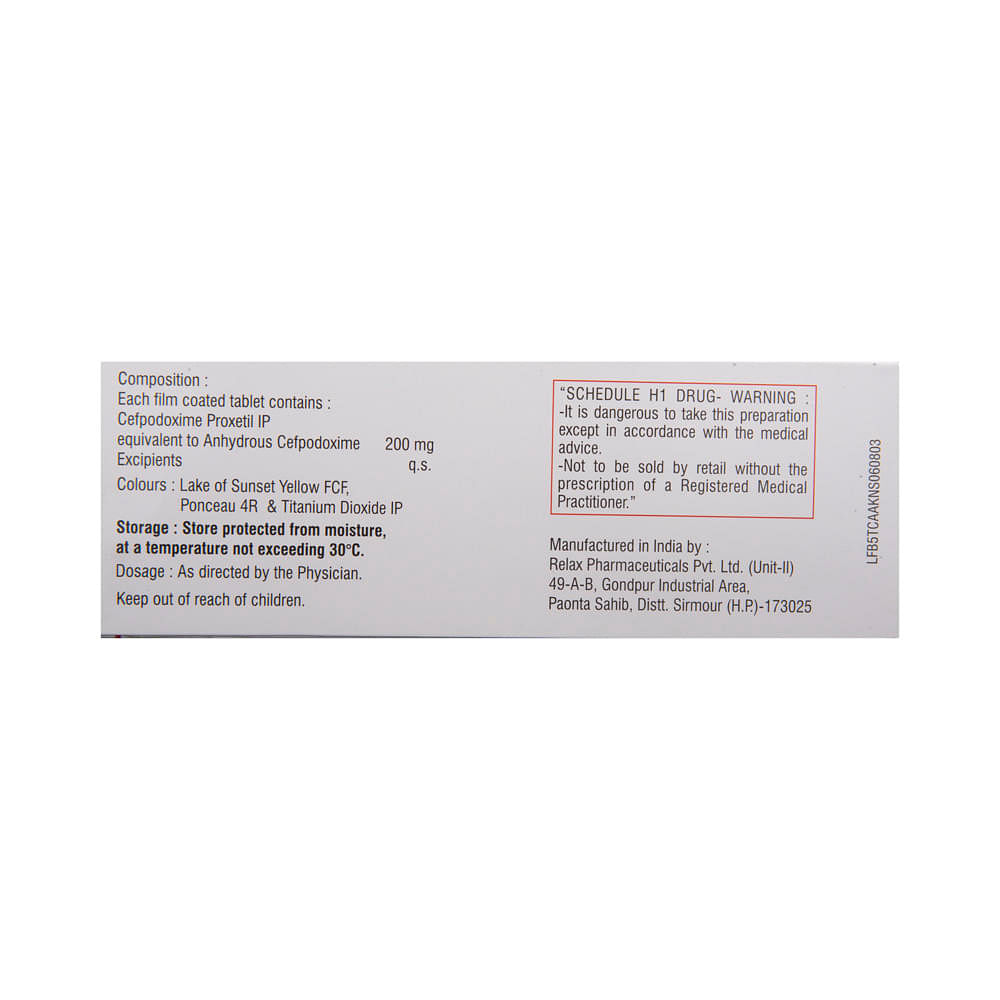
Gudcef-200 Tablet
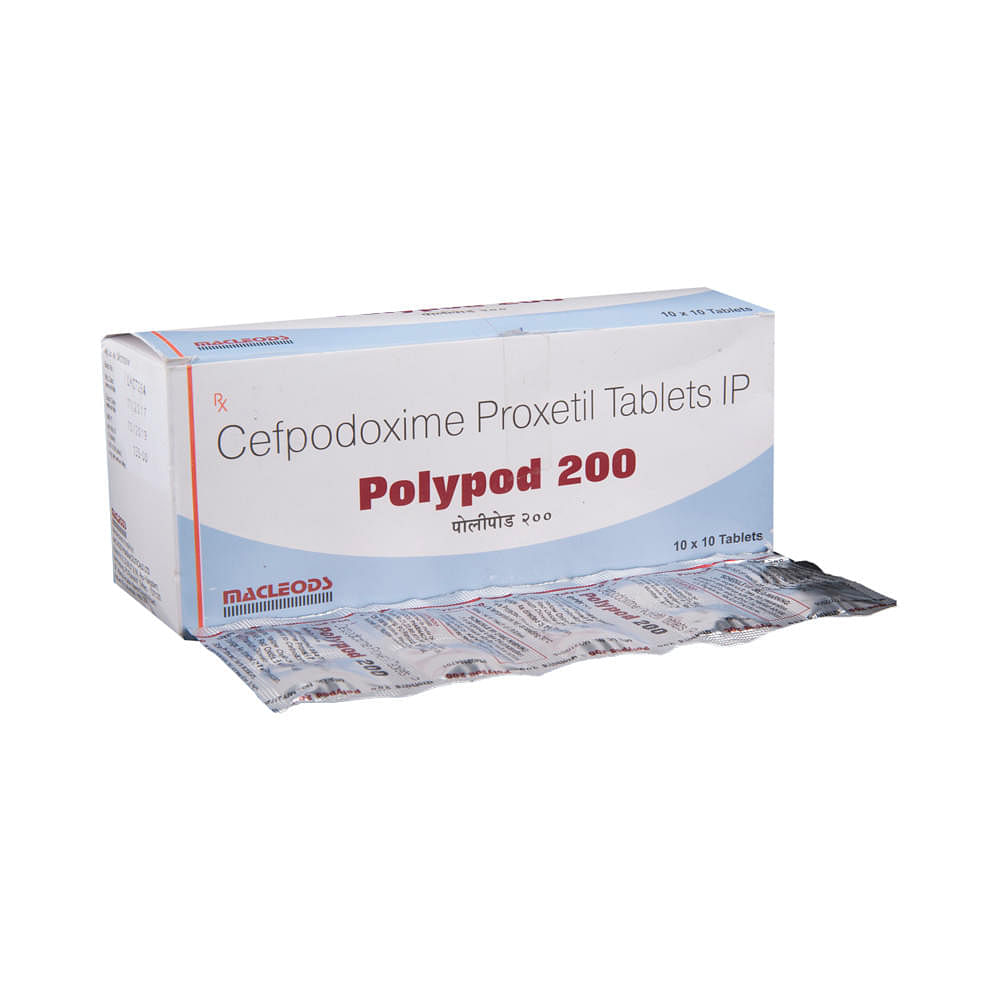
Polypod 200 Tablet

Kefpod 200 Tablet
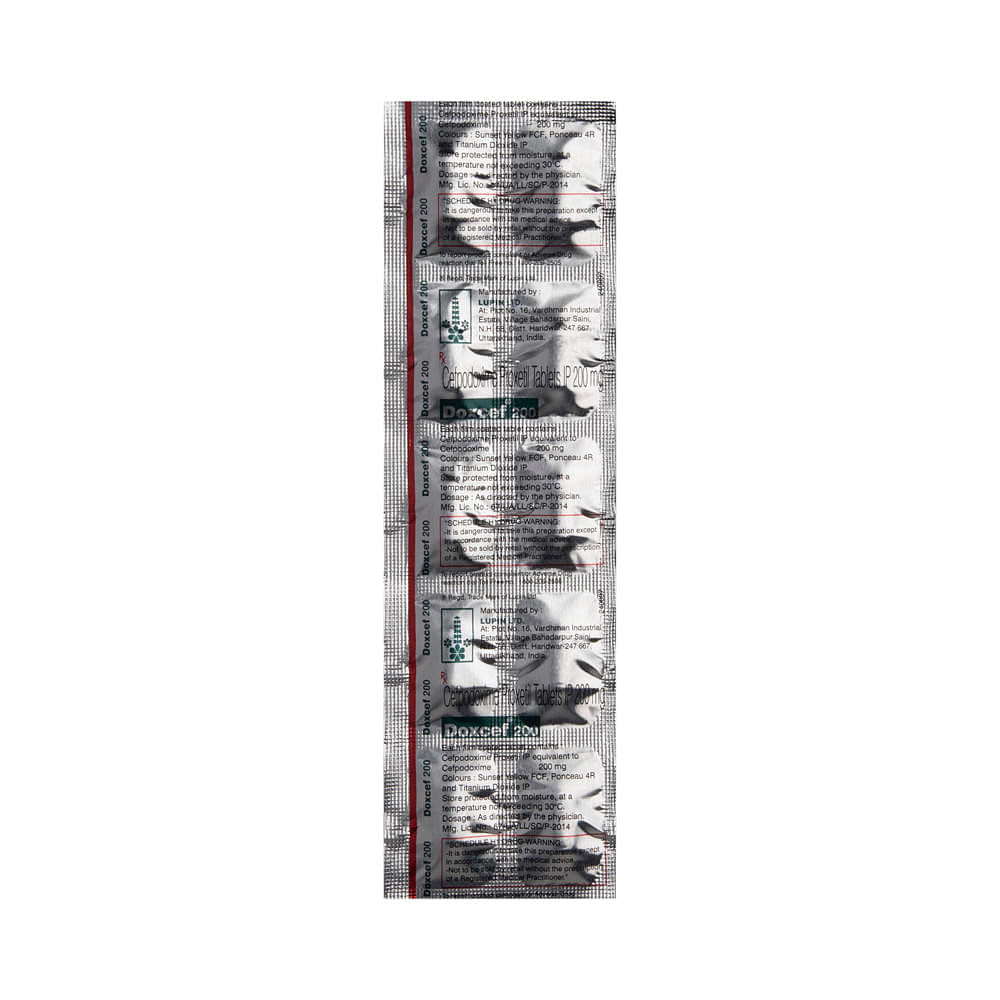
Doxcef 200 Tablet
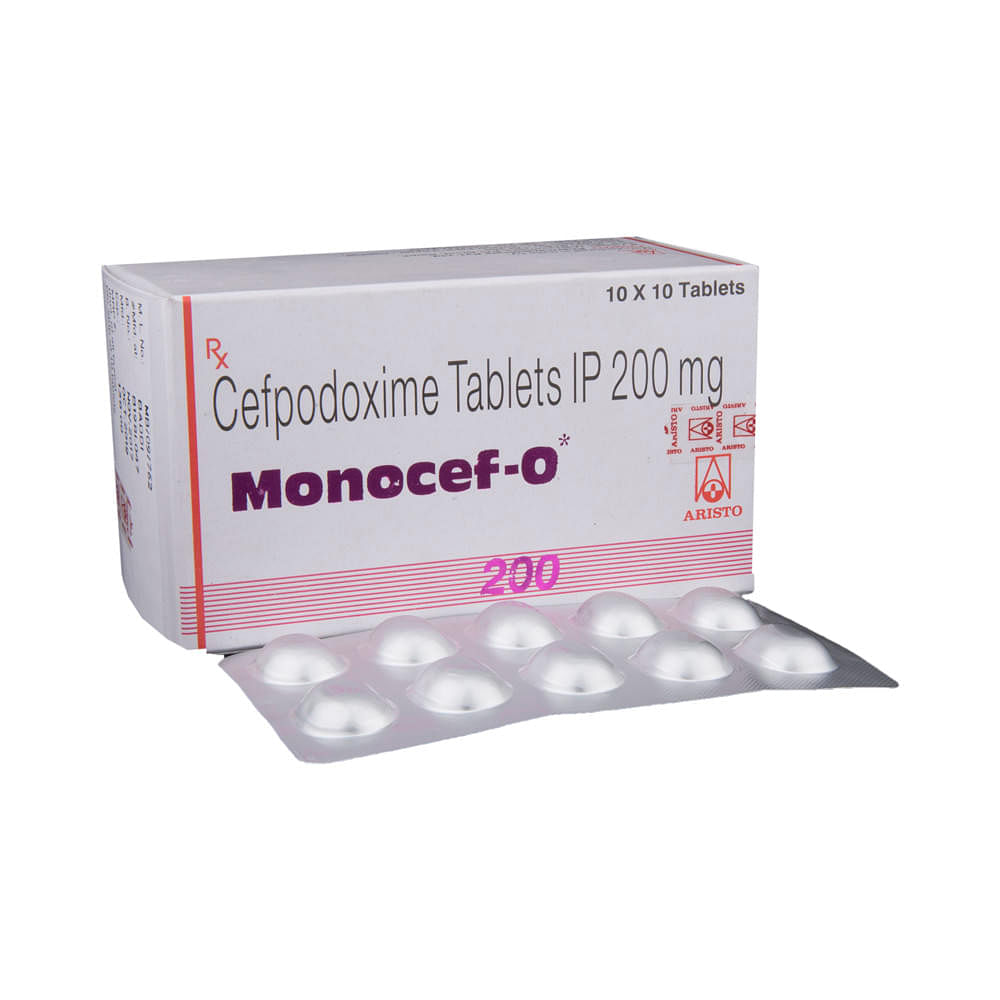
Monocef-O 200 Tablet

Swich 200 Tablet
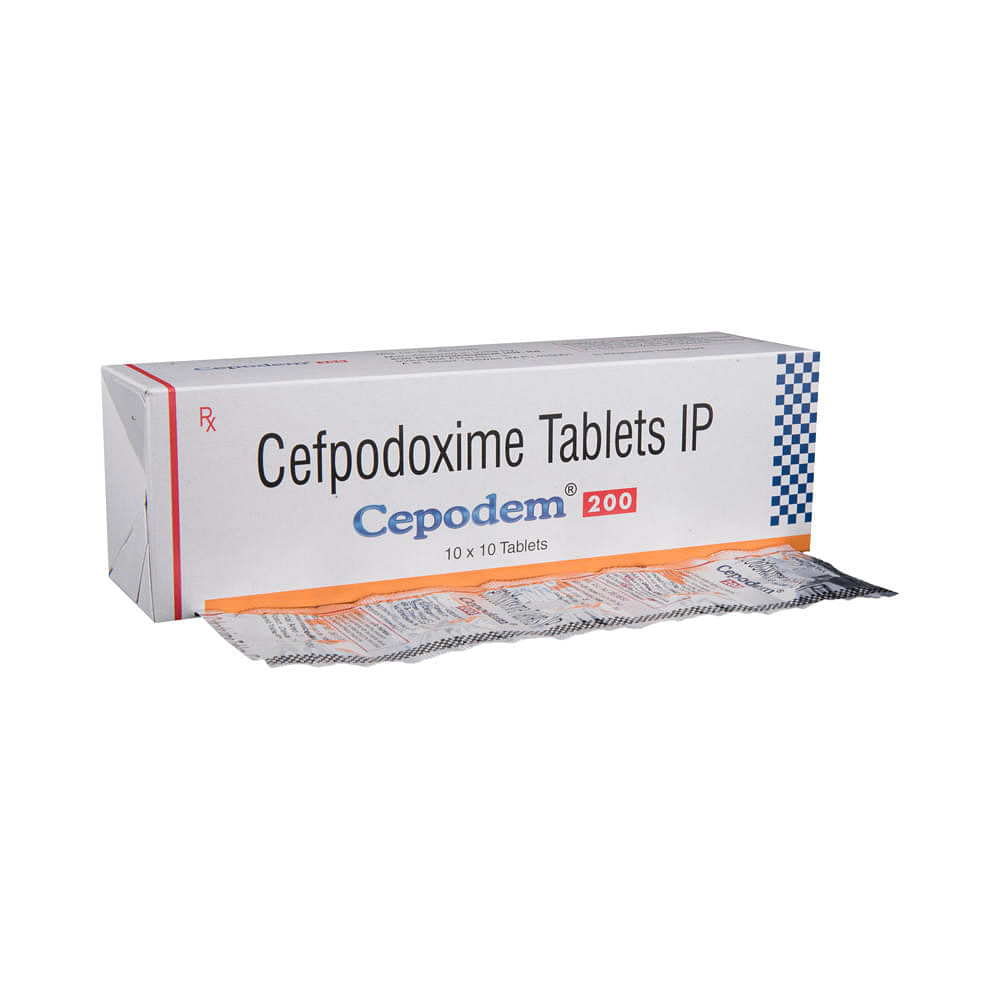
Cepodem 200 Tablet

Plugdox 200mg Tablet

Cefodrox 200mg Tablet
Frequently asked questions
Is Kapdox 200mg Tablet safe to use?
Kapdox 200mg Tablet is considered safe when used at the prescribed dose for the prescribed duration as advised by the doctor. It's essential to follow your healthcare provider's instructions regarding its use.
Can Kapdox 200mg Tablet cause diarrhea?
Yes, Kapdox 200mg Tablet may cause diarrhea as a side effect. It is important to note that this medication belongs to the cephalosporin group of antibiotics which can affect the balance of good and bad bacteria in your body and lead to diarrhea. If you experience persistent diarrhea, please contact your healthcare provider for further guidance.
Is Kapdox 200mg Tablet an antibiotic?
Yes, Kapdox 200mg Tablet is an antibiotic, belonging to the cephalosporin class of antibiotics.
Can Kapdox 200mg Tablet cause constipation?
Yes, Kapdox 200mg Tablet may cause constipation as a side effect. If you experience this, consider incorporating fiber-rich foods like fruits, vegetables, whole grains into your diet and avoiding oily or spicy foods to manage it. If your constipation becomes more severe, consult with your doctor.
When should I stop taking Kapdox 200mg Tablet?
Do not stop taking Kapdox 200mg Tablet before completing the full course of treatment as prescribed by your healthcare provider. While you might start feeling better sooner, it is crucial to follow the prescribed duration for complete bacterial eradication and symptom relief.
How long does it take for Kapdox 200mg Tablet to work?
Kapdox 200mg Tablet usually starts working quickly after administration. However, killing all harmful bacteria and achieving complete symptom relief may take several days.
What if I do not get better after using Kapdox 200mg Tablet?
Inform your doctor if you do not experience improvement or the symptoms worsen after completing the full course of treatment. It's essential to seek immediate medical guidance in such cases.
Can Kapdox 200mg Tablet treat UTI?
Yes, Kapdox 200mg Tablet may be used to treat uncomplicated urinary tract infections (UTIs). It is believed to have better tolerance and can effectively address symptoms such as foul-smelling urine, frequent urination, vaginal irritation, discharge, stomach pain, etc., in patients with UTIs.


